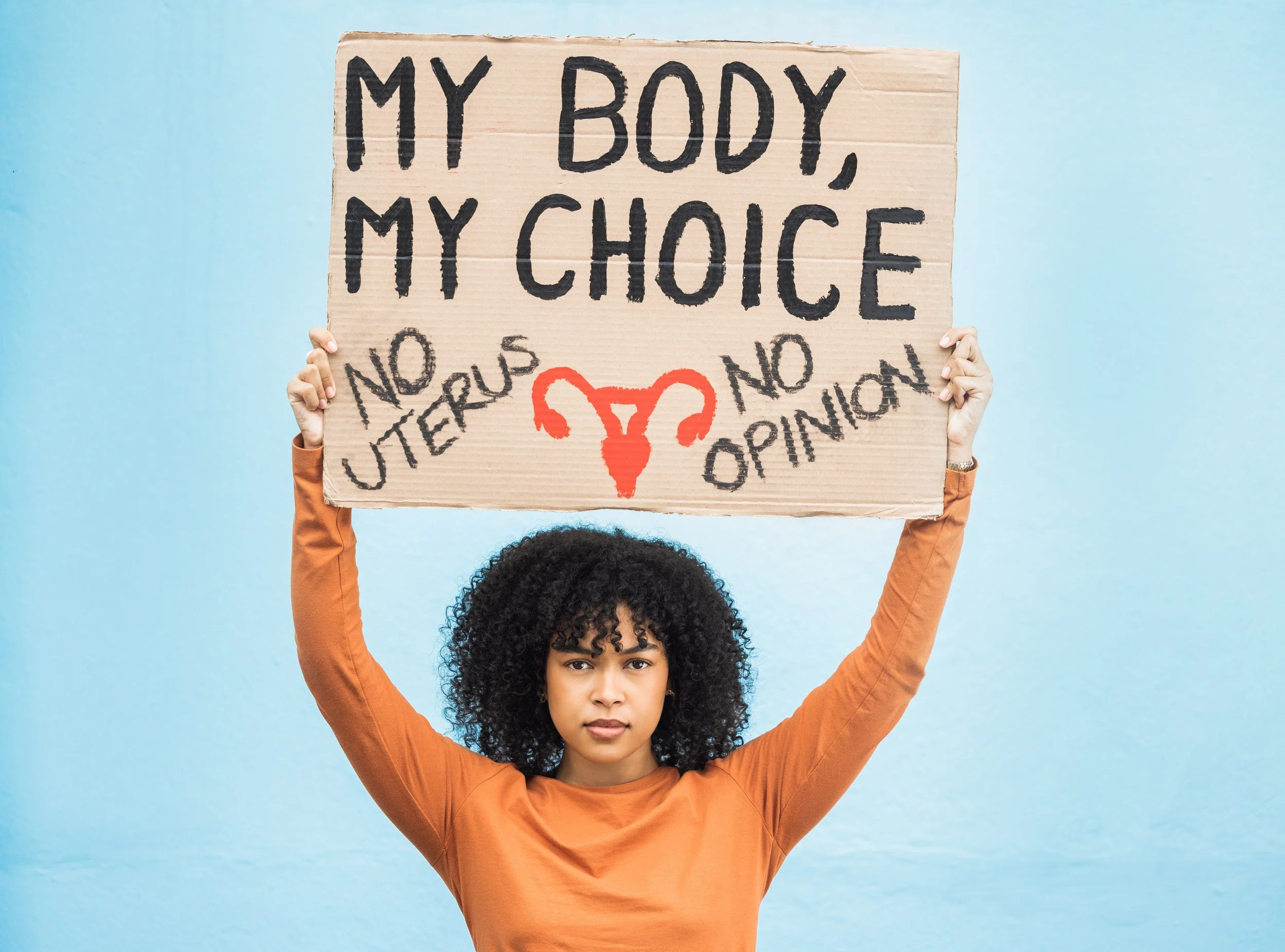WE NEED TO TALK ABOUT ABORTION.
There is so much current talk in the media surrounding abortions and what’s happening around the world. We’ve seen an overturn of Roe V Wade in America, which has criminalised abortions in multiple states, we have the far right such as Charlie Kirk saying ‘the child would be born’ when questioned about a potential rape of his 10 year old daughter, and now in the UK we are witnessing Reform Party Leader, Nigel Farage, saying that he wants to change the law on abortion making the window to receive care even shorter.
What is the medical definition of abortion?
An abortion, or termination of pregnancy, is a way of ending a pregnancy, either using medicines (drugs) or undergoing a surgical procedure.
Let’s look at the UK law, surrounding abortion which is better known as The Abortions Act of 1967.
An abortion of under 24 weeks is legal. - as long as it meets the following criteria.
If the pregnancy hasn’t exceeded 24 weeks and 2 medical professionals agree that continuing the pregnancy would involve risk to the pregnant persons physical or mental health.
The termination is to prevent grave permanent injury to physical or mental health - this could be things like organ damage, nerve damage or psychological trauma, to name a few.
Risk to life of the pregnant person.
There is a risk of the child being born with severe deficits - this meaning severely disabled that could affect their quality of life.
If a pregnant person was to access an abortion outside of these parameters, this can result in police investigation.
Types of Abortions
There are two types of abortions; Surgical and Medical. Which type of abortion you undergo depends on the gestation of the pregnancy and the location in which you wish to receive care.
Early Medical Abortions (EMA)
This is the most common form of abortion within the UK when the foetus is up to 10 weeks gestation. It is administered in the form of a tablet which you can take either in the clinic or at home after you’ve been seen by a medical professional.
Surgical Abortion
This form of abortion involves a medical procedure to remove the pregnancy from the uterus and is performed in clinics or hospitals. This is usually used when the pregnancy gestation is around 14 weeks or more.
On the 2nd of June 2025, MP’s will be debating on decriminalising abortion, allowing pregnant people to gain access to safe abortion healthcare, without having to face any criminal charges. It is in response to a petition that gained over 100,000 signatures stating; “I am calling on the UK government to remove abortion from criminal law so that no pregnant person can be criminalised for procuring their own abortion."
At the end of the debate their will not be a vote to implement this into law, however it will give MP’s a chance to raise any points surrounding this and gather a response from the government. Although this is something we would like to see implemented into law, this is a big step in the right direction for legalising abortion and removing it from criminal law.
As a Sex and Relationship educator, the topic of abortion is very important to me because it not only encompasses promotion of informed, healthy, and autonomous decision-making about sexuality, relationships, and reproductive health. Abortion is critical when it comes to teaching about bodily autonomy, consent and what to do when a pregnancy occurs, knowing that it’s an option to those out there. Abortion is healthcare and healthcare is something that everybody has the rights too. By criminalising abortion not only do we create masses amount of stigma, we also lose autonomy.
STATISTICS
These are important parts of dealing with abortion care. There is a lot of feeding in our media at the moment, having you believe that pregnant people are seeking abortion without due cause, unable to make their own decisions, aborting foetuses over 24 weeks.
Let’s look at the data…
These are all taken from the Gov Website, Abortion statistics in England and Wales, 2022.
2022
As stated previously, abortions may be performed after 24 weeks in certain circumstances - for example, if the pregnant person’s life is at risk or the foetus would be born severely disabled.
Only 0.1% of abortions happened at this point, contrary to what certain politicians would have you believe.
That is 260 abortions out of all performed abortions in England and Wales.
As a woman and an educator, I believe safe access to abortion is fundamental to the health of pregnant people.
Abortion is a deeply personal decision, shaped by complex and individual circumstances. Whether someone chooses abortion, parenting, or adoption, they deserve access to accurate information, compassionate care, and the freedom to make the choice that's right for them—without judgement or barriers.
As we continue to talk openly about abortion, we help reduce stigma and create a culture where everyone can make informed, supported decisions about their bodies and lives. Education, empathy, and respect are powerful tools in building a more just and understanding world.
Because at its core, this conversation isn’t just about abortion—it's about autonomy, dignity, and the right to choose our own paths.


